New manifestations of sociological, psychological and economic laws in global socio-political life have acquired absolutely unprecedented scales. Reality is determined more and more by the spread of the fourth industrial revolution to the socio-political sector. This concerns new generation information and communications technologies related to expansion of the Internet and also the collection and processing of large arrays of different data in a digital format, the use of elements of artificial intelligence. These technologies adapted for use in mass communications have rendered it possible to dilute the fundamentals of the “classical” model of the political organisation of society.
POLITICAL ENTROPY
Digital technologies and the globalisation of disorder
- INTRODUCTION
- ON THE POLITICAL SYSTEMS OF THE NEW AGE
- THE PANDEMIC AND POLITICS
- INFORMATION OCHLOCRACY
- THE NEW AGE ECONOMY
- MASS PROTESTS AND THE MODERN WORLD
- WHAT SHOULD BE DONE? INSTITUTIONALISATION OF VALUES
It goes without saying that the crisis of party systems and related state institutions, the contradictions in the relations of the authorities and society in leading democratic countries have been in the making for many years. New technologies changing the realities of life expedited crisis phenomena and the ongoing destruction of institutions, and as a result fringe ideas and politicians with authoritarian views have started assumed far more significant positions in their countries (See «On the political systems of the New Age»).
The “networking” of society so typical of today1The Dutch sociologist Jan Van Dijk determines a “network society” as a society where a combination of social networks and media networks shapes the key form of organisation and where they represent the most important structures at all levels (personal, collective and public). By contrast a mass society is shaped by groups, organisations and communities, arranged through physical co-presence (Jan Van Dijk, De Netwerkmaatschappij [The Network Society], 1991)., accompanied by a wide distribution of forms of influence, and accordingly, a decrease in individual responsibility, has resulted in an abrupt increase in the number of random outcomes unrelated to the actual ratio of interests of publicly significant groups. Significant opportunities have appeared for strange political decisions that unexpectedly receive support and a chance for implementation. Presented by enthusiasts as a tool democratising governance, in reality, “networking” generates chaos and irrationality.
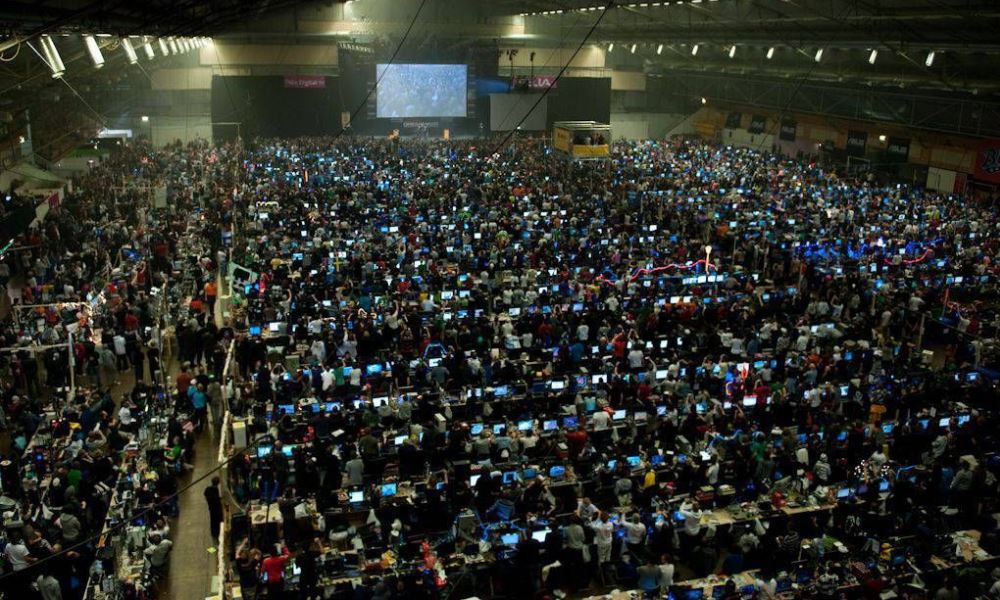
These developments demonstrate that the disruption of politics, in particular, the party parliamentary systems in leading Western countries, is not some accidental short-term aberration. It is the natural consequence of the expansion of new information and communications technologies in the political sector, and accordingly represents a serious challenge for the future. Externally, this looks like political degradation, encompassing more and more countries against the backdrop of the coronavirus challenge. However, the developments may well be a reflection of the process of approving a new political system in a number of leading countries — a system which not only fails to compensate for the gap between the authorities and the electorates, the elites and masses, but on the contrary is based on opaque controls of society through new digital communications and social technologies (See «Information ochlocracy»).
Fundamentally new phenomena in the global economic system are being added (See «The New Age economy»), implementing the growing concentration of information and digital assets at the very height of the economic pyramid. There is no doubt that these processes will expand, and that the disparity (and possibly conflict) will become an intrinsic phenomenon in the long-term economic and social perspective.
For the time being, the new system does not exist anywhere fully and visibly. However, its contours have already begun to take shape. We are witnessing before our very eyes a serious transformation of the information and communications space, which has already led to notable political and social changes and may have even more significant consequences in the medium and long term. We have all the grounds for assuming that the world in actual fact will no longer resemble what it has been in the past. And this has nothing to do with the coronavirus epidemic.
Political, social and international institutions are coming to a standstill and are being destroyed, while the transition to a new quality is not happening. On the contrary, such phenomena as authoritarianism, racism, xenophobia, corruption, political murders and obscurantism are becoming more widespread. All this is being served up to us in a bright digital wrapper. Here it should be noted that the discontent and protest growing all over the world, barring some exceptions, is not an outburst of archaism, and does not represent the revolt of traditionalism against modernism from a socio-political perspective.
Most people today have not broken free of the traditional environment, but have already been born in a new world, against the backdrop of modernisation, and they know of no other world. The problem is different. The sensation of moving forward in time has been eroded. The loss of ideas about the future is forcing them to look for ideals in a mythologised past. Incidentally, this is no different to blind hopes in an imaginary future (rejection of the past as profound archaism; a “new man” superior to Homo Sapiens; self-assured optimism: “future generations will work it out”, etc.). Both approaches exclude the social and political identity of a human being and transform the individual into a slave of events which cannot be managed, and can only be adapted to.
In these circumstances the main struggle is happening inside the individual — the battle between models of our reactions to the surrounding world, to difficulties. The answer as to whether the individual will be able to overcome these new painful contradictions and obstacles is contingent to a large extent on how social and political institutions will work. Today the following are key:
- The need to understand that the world is united and that people are more likely to be united from a cultural and civilisational perspective than different;
- The importance of recognising developments and their causes, the paramount importance that elites (both previous and newly formed ones) understand their global responsibility — responsibility specifically for the whole world, and not some “fortress” of Western civilisation being protected from “hordes of barbarians”.
What can we do to counter fundamentally new threats to the present and future? In general, the answer is more or less clear: the crisis of state, political, social and economic institutions must be surmounted, they must be fundamentally restructured, technical and technological progress must be transformed from a factor generating chaos in life into a tool for creativity. In particular, this concerns the reorientation of the area of use of information and communications and digital technologies from control over people and the creation of manipulative tools to the guaranteed transparency, controllability and accountability of the authorities and big business.
To achieve this goal, we need above all a completely different framework to the one adopted during the past 50 years. If the framework is limited to satisfaction of material, quasi-material and emotional needs, then it goes without saying that the supremacy of technologies, algorithms and artificial intelligence will be guaranteed. And in this case it will already be irrelevant whether man is transformed into a slave of technologies, into an unnecessary evolutionary level who has served his purpose or into an application object of algorithms intent on gratifying the individual (and in the process generating an endless chain of new needs).
The alternative is a value-based framework. However, we are literally witnessing before our eyes a disintegration of European values (so-called universal values) of the political and social systems. These values — to all intents and purposes Christian values — after World War II were embroidered on virtually every flag, written as slogans, and became the ideal aspired to in principle by everyone. However, in the modern world interaction has become global, while the values partly embodied in developed democracies have not. Globalisation exists, but there is no global society, and such a society cannot be created by force, as life has proved convincingly.
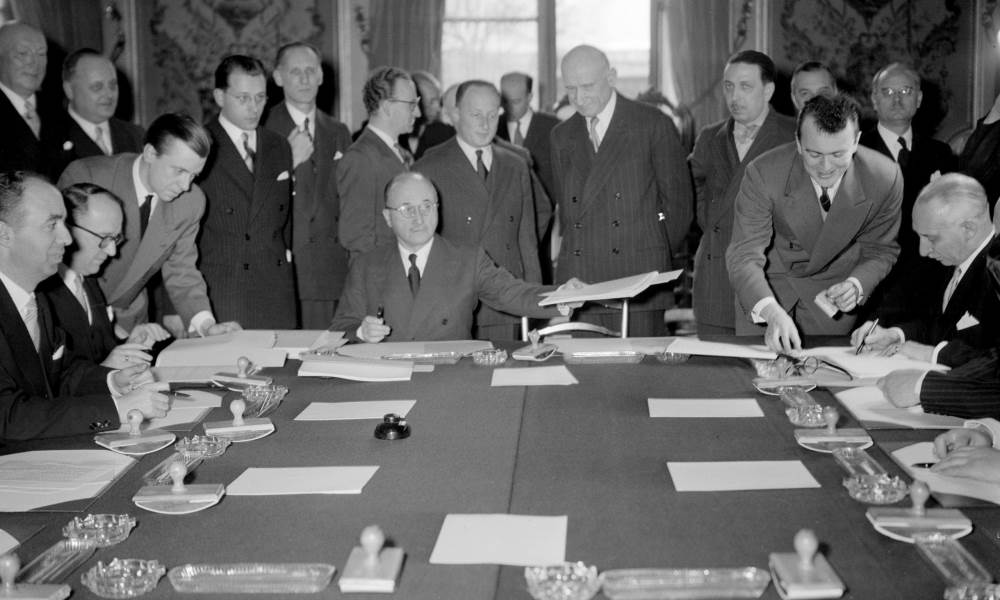
These days, owing to fundamental dissonance we are witnessing the erosion of and changes to the actual core value — the self-consciousness of the European world in its broadest understanding. The gap between hope and reality is crossing a qualitative threshold, transformed into a quagmire. If values are declared, but are not implemented, you end up with doublethink, “realpolitik” and “realeconomik”. Systems similar to Putin’s regime are also growing based on the assurance that in actual fact this is the only possible path: that democracy is mere imitation and hypocrisy exploited by the elite to control the masses.
There is a growing belief in today’s world that value-based ideals are unattainable. The values themselves are being challenged, there is a growing conviction that no common moral values actually exist, or that they are arbitrary and relative.
Values are on the whole comparable with fundamental science which is the basis of progress, but may at the same time be perceived by the man in the street as pointless playthings.
In addition, in today’s political post-modern environment it is assumed that any significant idea is underpinned by a rational kernel: “Let’s just accept that this is how things are and live in peace and harmony.” However, we are unable to do so. For if the rational kernel is underpinned by freedom or non-freedom, in democracy or in fascism, this means that all moral values are relative. In other words, they simply don’t exist. Then what does exist? We have preferences: “what would you like, what should we bring you — tea or coffee, justice or arbitrariness?” And if there are no absolute values, then there is also no platform for dialogue. And if there is a change in principle in politics, if in the economy it is reduced to the level of “coffee or tea”, then all political discourse is pointless2See, for example, the election debates of US presidential candidates Donald Trump and Joe Biden on 29 September 2020. And the winner will be the individual who dismisses any need to listen to any opponent, opposite number, rejects any need to answer them substantively, in other words, an egotistic autocrat, Stalinist, fascist.
There should be no need to bring the world to the cusp of World War III to recognise that such an approach is vital. If the institutionalisation of values is determined is a political objective, we will also see real progress.
What do we mean by the institutionalisation of values?
The underlying principle is that people are entitled to freedom and dignity, simply because they are people. The life of an individual, the individual’s potential and creativity should stand at the very core. And these goals should be transformed into institutions — sustainable forms of the organisation of the joint activity of people.
The need to change the criteria for assessing the legal capacity of state and public institutions is dictated by the return to this principle which is nothing new and remains relevant. Values should not simply be slogans on the façade: they should serve as the basis of the operating mechanism when state institutions are built so that the substance of their work and the meaning of their activity is the practical implementation of fundamental values.
For example, if one were to apply value-based criteria to the demands of people protesting in the USA, then instead of a reduction in funding for the police, it would be better to achieve changes in the operating principles and benchmarks of the law enforcement authorities, whose actual goals and performance indicators should be based on saving people’s lives and health, regardless of their race and nationality.
The benchmark value in the work of international organisations should be to create equal terms and conditions in global trade for all countries, overcome the discrimination and monopolies perpetrated by the world’s biggest economies, digital behemoths and multinationals.
In the global economy the institutionalisation of values should be expressed in the establishment of the following goals: surmount stifling overproduction in the countries of the “golden billion” (the wealthy in industrialised countries), offer real institutional support and ensure the gradual economic levelling of the poor and poorest countries and continents. And this issue — the fundamental expansion of global markets, the institutionalisation of global competition — is to all intents and purposes the key prescription on how to overcome the constant threat of further global financial and economic crises.
In business this means a move first and foremost to institutionalise business integrity. Here the personality of the businessman should be the key source of trust, and not his group, corporate, racial or national provenance.
And it goes without saying that a major area for institutional work here is to ensure the equality of opportunity, reintroduce social lifts, overcome trends aimed at institutionalising the opposite, namely, desperate social divides. The creation of equal starting opportunities should become part of the activity of all economic and legal institutions.
We need radical reform of institutions, and not some preaching to this effect (and external controls that are not based on such moralising). Otherwise, if some preacher or the state is responsible for the equality of opportunities, the system will naturally resist, seeking ways to circumvent norms imposed on it from the outside. This has nothing to do with any “spiritual component”. A spirit, which has not become an integral part of the body and disappears over time, is blown away. Conceptual changes should originate from the actual institutions.
For example, mercy should be included as one of the key assessment criteria of the effectiveness of the judiciary, together with the unavoidability of punishment. If a court shows no mercy, this means that it is ineffective, which in turn means that it works poorly.
Meanwhile the overriding principle in the army should be to attain set goals with the maximum preservation of human life — both the lives of its own soldiers and those of the enemy.
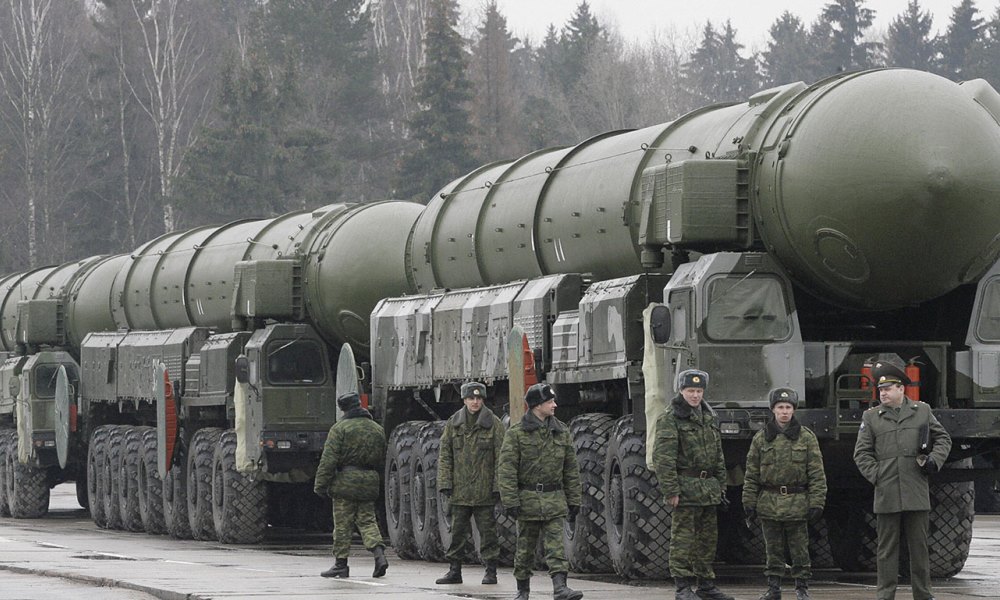
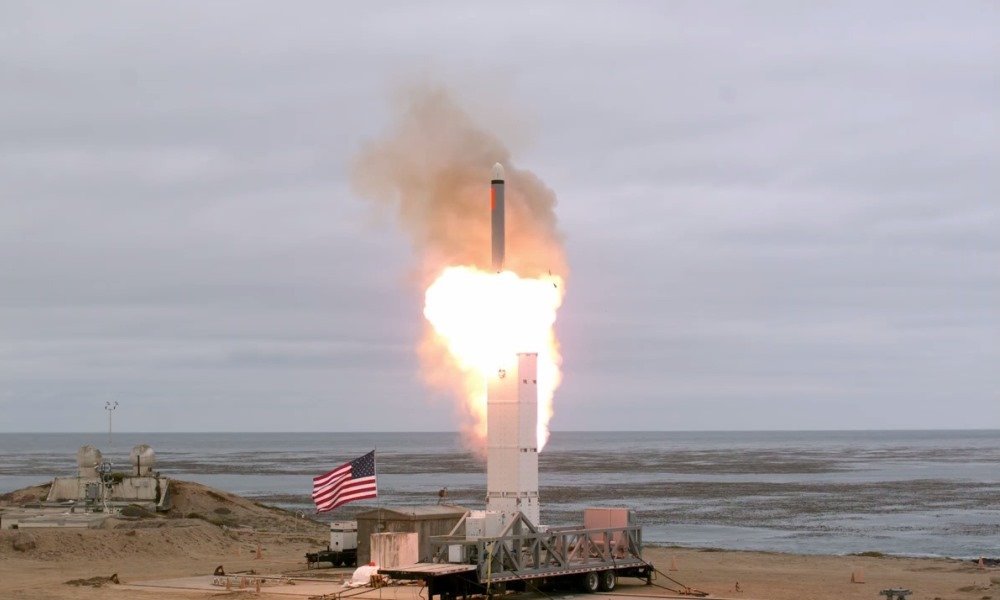
If a weapon (for example, a weapon of mass destruction) kills everyone indiscriminately, is based on the principle of “carpet bombing”, then it is ineffective. The arms control system is being destroyed again and again precisely because the prevention of a nuclear disaster, proceeding from unconditional recognition of the value of a human life, has stopped being the ultimate goal. Instead, we see on the one hand a desire to create a sovereign impregnable anti-missile defence system, and on the other hand a simmering passion for an arms race: “and we will break through, we will get round, we will deliver and win!” And this triggers a chain reaction, destroying not only the arms control system, but also everything that is being done along the lines of the non—proliferation of weapons of mass destruction.
Helping the weak and others falling behind in the current environment should not be considered to involve merely the merciful handout of scraps to beggars from the rich man’s table, but rather as a central component of the organisation of the international community. A very important and relevant component is to facilitate access to COVID-19 vaccines. However, on this front the exact opposite is happening: there is demand, but there is no response.
The developed world must overcome the political and economic crisis through the institutionalisation of values, otherwise such concepts as globalisation and democracy are imbued with completely different implications emanating from Communist China (total control, the assimilation of new territories, the expansion of influence, the dictates of the majority, the standardisation of thinking, etc.) and utterly removed from the value-based framework of European civilisation.
Consequently, this concerns the conscious and intentional reconstruction, development or creation of institutions capable of functioning in the new environment. A more comprehensive and detailed description of the proposed approach will follow. However, time is ticking: already today the hope gap is growing critically in many parts of the world among influential population groups, and a sense of resignation to unsurmountable inequality and an irreversible lag is intensifying continuously. All this could be termed the loss of any future3See Grigory Yavlinsky, Loss of the future, 2017.
If institutions are built on a value basis, it will be possible and necessary to draw on existing international experience. That is how the European Union was created. It did not start with the common market or political and bureaucratic structures, but instead with the idea of forgiveness and reconciliation, with recognition of the equality and unity of Europeans when confronted with unprecedented tragedy. Another example of institutional values is the policy of de-nazifying Germany and the construction of the “first Non-Hobbesian State”4Definition of the Lithuanian philosopher and publicist Leonidas Donskis in conversation with Zygmunt Bauman. See Zygmunt Bauman, Leonidas Donskis, Liquid Evil. Saint Petersburg, Ivan Limbach Publishing House, 2019. , which differs in principle not only from the Third Reich, but also vanquished the actual understanding of a state as a coercive power.

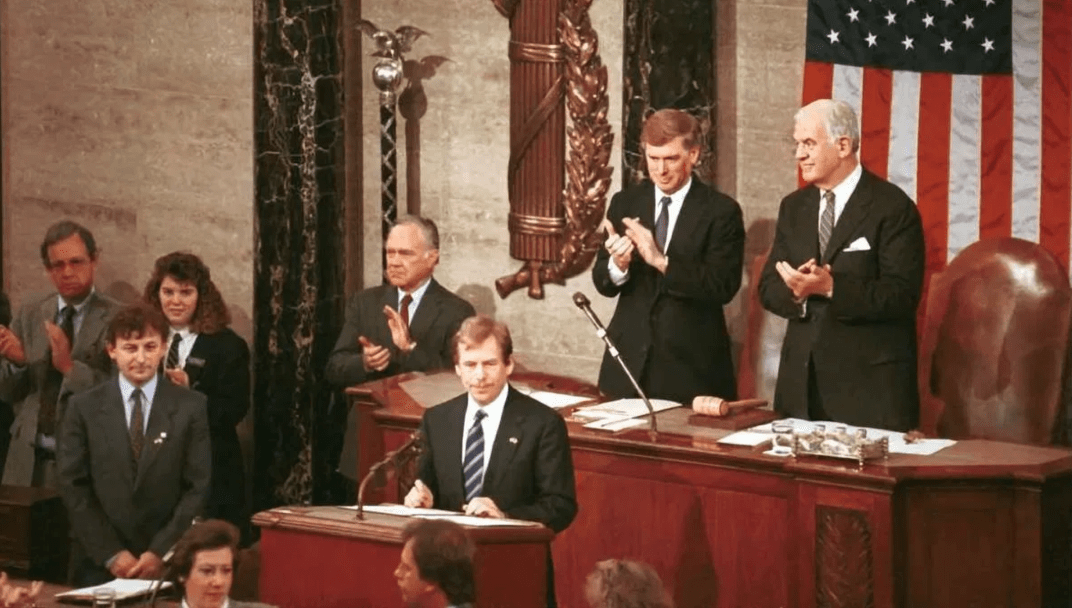
Resolution of such fundamental objectives requires such political leadership, whose stable moral base and strategic vision of the challenges facing society and the world are combined with effectiveness with implementation of the goals established on this basis. They include the brightest representatives of such policy — leaders who had a significant influence both on the development of their own countries and also global processes: Martin Luther King, Nelson Mandela, Kim Dae-jung, Václav Havel … Incidentally, it was Havel who said 30 years ago when speaking in the US Congress: “Without a global revolution in the sphere of human consciousness, nothing will emerge for the better in the sphere of our Being as humans, and the catastrophe toward which this world is headed, whether it be ecological, social, demographic, or a general breakdown of civilisation, will be unavoidable”5See Speech by Václav Havel in the US Congress, 1990. .
However, we are not talking here about a return to the past — to some extent when at some point we “took the wrong turn”. It goes without saying that historical lessons are important, but in history one should not look for the “golden century”, but instead for the institutional seeds that we need to scour and cultivate, as we proceed in a completely new environment. The essence of the contested approach is the replacement of human will with the “right” equation, formula, algorithm and. technology. Man, his life, health and development represent the centre, the meaning and end goal of political action. The removal of man from the framework would render politics meaningless. It is only with man at the centre of politics, only against the backdrop of freedom and creativity, in an environment prioritising life without fear, that we can eliminate the gap between the people and technologies. To prevent technologies from manipulating man, and ensure instead that man manages technologies. And to achieve this goal, we need to perceive people as our citizens and offer them an intellectual product deserving of a civil society.
Naturally, against the backdrop of the grandiose fake information storm, it is virtually impossible to access the consciousness of people with such proposals. To do this, we need to find the appropriate moment. Time is not uniform: there are moments when people turn out to be more susceptible to new knowledge. Unfortunately, this often happens after disasters, for example, lost wars or during an abrupt deterioration in living conditions when the picture of the world suddenly changes and people don’t have time to adapt. Then questions are raised in society which had previously been virtually ignored. And if one tries to be brutally honest when answering them, the response may sometimes be heard.
At the same time, a clash with modern trends such as the supremacy of algorithms and universal digital “optimisation” is inevitable. Naturally, however, this will not constitute resistance in the form of modern Luddism and the demolition of mobile communications towers. This will be a fight over the choice of the future roadmap.
In turn, moral principles that are not exercised fade and die. Mankind cannot live without values and principles in particular in the age of high technology and globalisation. In the past the holocaust showed that technological and rational civilisation, devoid of moral principles, can lead to universal catastrophe and transform people into the denizens of hell. Modern technologies and the mechanics of globalisation can spread like wildfire instantaneously any virus, any ideas of the post-modern and even the wildest superstitions through all countries. In other words, the more modern the technologies, the more serious the adverse consequences of downplaying values and principles.
The loss of values and meanings in modern life is the result of the almost voluntary rejection of freedom of choice. It is vitally important to return this topic to the political discourse. In the end, the worst nightmare is not Putin, his generals, corrupt officials and special police forces. The worst nightmare is what happens to the human personality when individuals forego the freedom of choice.
POLITICAL ENTROPY
Digital technologies and the globalisation of disorder
- INTRODUCTION
- ON THE POLITICAL SYSTEMS OF THE NEW AGE
- THE PANDEMIC AND POLITICS
- INFORMATION OCHLOCRACY
- THE NEW AGE ECONOMY
- MASS PROTESTS AND THE MODERN WORLD
- WHAT SHOULD BE DONE? INSTITUTIONALISATION OF VALUES



